Warrior Poet
Any and all warriors should write One poem.
That is the only qualification you need to be a poet.
As a poet, you will be able to write your stories.
As a warrior, you will have stories to tell of your exploits.
A record is important, it is not just decorations and parades,
It is the recall of events by the participants in the battle.
Tell us your story; as you fought, defended or survived in battle.
Pick up a pen, scribble your poem, share a warriors soul with mankind.
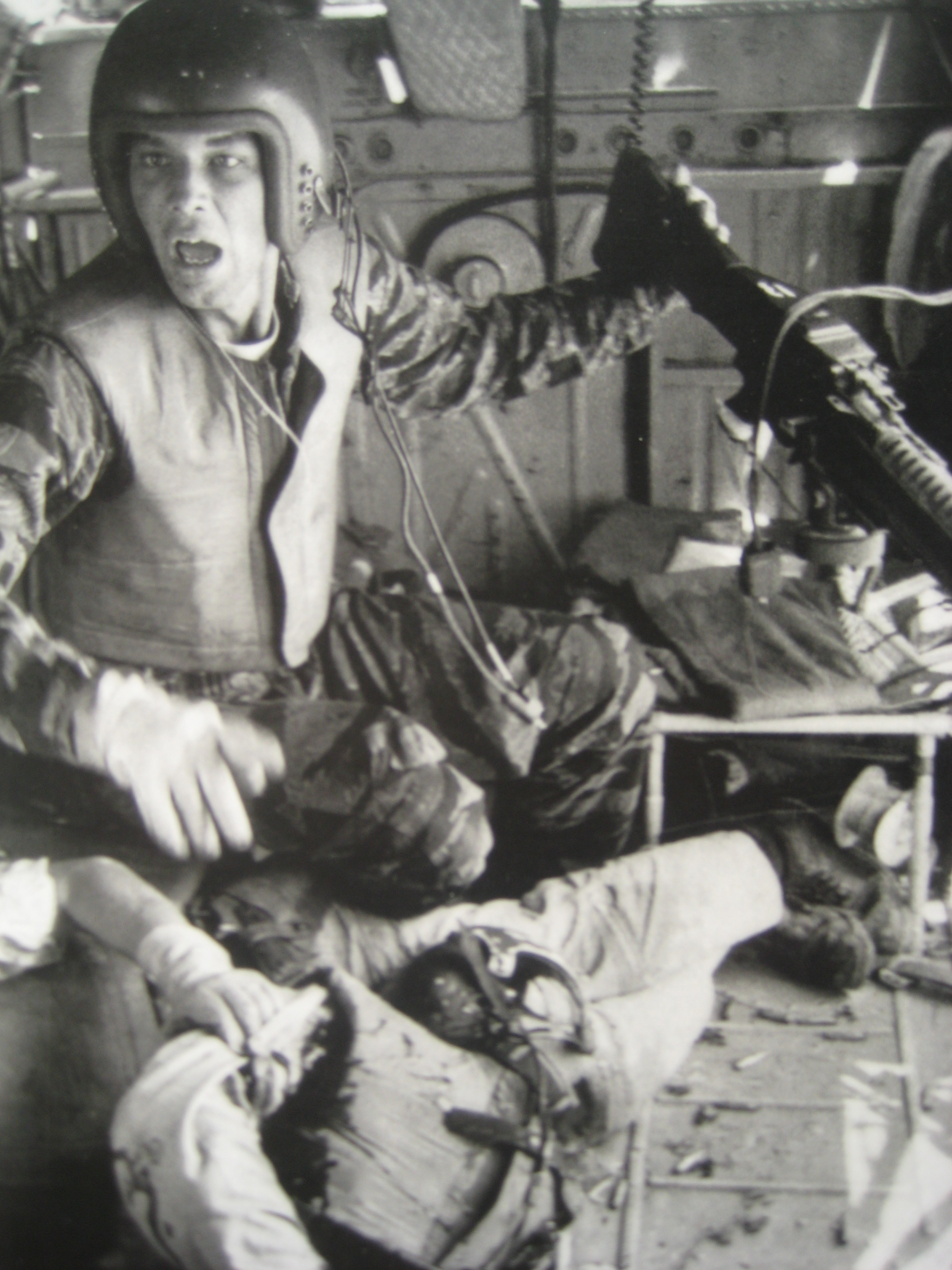
Mosiello's Signal
All the team had survived an ambush,
A few minor wounds, nothing serious.
Each and everyone said the same thing:
Mociello had saved them from death.
I did the after-action debrief
Of Sergeant Albert Mosiello.
Back from behind enemy lines,
Back from a dangerous mission.
On the second day of this patrol,
Moving quietly down a trail, he froze:
He gave the signal to take cover -
Moments before an ambush was sprung.
The explosions and gunfire
Went over their heads and prone bodies.
They accurately returned gunfire,
Breaking the ambush, and they broke free.
The extraction was a tough affair,
But we got the team all out of there.
The minor wounds from shrapnel treated,
And a cold beer to each of the team.
"What made you give the ambush signal?"
I once again asked Mosiello.
"Something did not feel right, I sensed them.
I knew they were there. I'm not sure how."
Mosiello's Rescue
I had just returned from leave,
When the alarm sounded loud.
A plane had been shot down,
And a rescue we must launch.
I grabbed my flight vest.
I grabbed my helmet and gun,
And it was a one hour flight -
To where the plane went down.
Upon arriving over the site,
I talked on the radio -
To the survivor of the crash,
Sergeant Mosiello was O.K.
He said the front-seater died,
He never ejected after the hit.
He said he was surrounded -
By perhaps a regiment.
Their guns were set-up and waiting.
They were waiting for the rescue.
They knew we would want him back.
They knew we had to go in for him.
We started working the air-strikes.
The slow movers were taking hits,
Too many guns shooting at us,
We called upon the fast movers.
They came in from all directions,
Ever closer, we worked the air-strikes.
It looked good, and we were set,
We'll try to pull Mosiello out.
The first chopper in took a hit,
A rocket direct in the nose.
The ship reported it was O.K.,
But we sent it back to base.
We worked more air-strikes,
We worked them closer still.
The napalm discouraged the foe,
But, the fight never let up.
One more rescue chopper inbound,
He's hit, and all lite up:
Burning to ashes in the sky,
Not much left to fall down.
It is now our turn to fly over,
To confirm, there are no survivors.
It's in low and slow we fly,
With all guns blazing at us.
We work the air-strikes still more,
Always hitting the shooting guns below.
And Mosiello keeps talking,
Telling us all he see's from down there.
The gun fire has slacked some.
We'll send a chopper in again.
The pick-up is smooth and quick:
Sergeant Morciello is out of there.
Mosiello's Court Martial
Staff Sergeant Albert Mosiello,
Absent without official leave,
"Convene the Special Court Martial!"
The case will be heard and judgement rendered.
He came back from the war in Viet Nam,
Was given a thirty day leave,
And as he still had money left,
He stayed gone an extra ninety days.
This warrior with ribbons galore
Was in violation of the rules.
The Articles of War applied.
He was still part of the Army.
He claimed he did not know the rules.
He thought he could stay a bit more,
As he'd been gone for many years -
Fighting in the war over there.
The black robed judge sat high up,
To hear the plea of the accused:
"Guilty your honor, I didn't know -
All the rules, back here in the States."
The judge looked upon the court,
Seeing many grizzled veterans,
Who traveled far to bear witness -
To the deeds of Mosiello.
A General spoke, all listened:
This Mosiello knows of battle.
He knows about fighting and killing.
He is a soldier of courage.
A Colonel spoke, all listened:
Mosiello flew in aircraft,
As a Forward Air Controller,
He was shot down over Laos.
To rescue him, brave men rallied,
The price was high, six men did die.
He would have done the same for them.
He deserves consideration.
The judge, when all was said that day,
From the bench imposed his justice,
"You plead guilty, and guilty I find.
Your sentence, an official reprimand."
The Court Martial was now over.
The young black robed judge stood up,
He saluted Mosiello, saying:
"You deserve my salute Sergeant."
"Your courage and service saved you.
These warriors gave witness of your deeds.
To hear these stories is to believe.
To be saluted is your due."
In recognition for my actions in conjunction with Mosiello's Rescue, I was awarded my third Air Medal with "Valor" device.
AWARD OF THE AIR MEDAL FOR HEROISM
For heroism while participating in aerial flight in Southeast Asia: Captain Duffy distinguished himself by heroism on 30 June 1970 while serving as Senior Airborne Controller of a search-and-rescue mission. Directing several low level passes to be made, Captain Duffy quickly determined the condition of the survivor of the downed OV-10 aircraft, and then directed a total of thirty-eight strike aircraft against the enemy positions. During one of five attempts to extract the survivor, one HH53 was shot down. Once again, in the face of highly accurate and aggressive enemy ground fire, Captain Duffy directed low level passes to be made, to determine if there were any survivors of that downed aircraft; none were observed. Captain Duffy's knowledge and capabilities to direct multi-air assets in the best possible configuration, in addition to his sound judgement and calmness in the face of hostile fire, were a key factor in preventing the further loss of life and aircraft in the difficult SAR effort. Captain Duffy's heroic actions were in keeping with the highest traditions of the military service and reflect great credit upon himself, Special Forces and the United States Army.
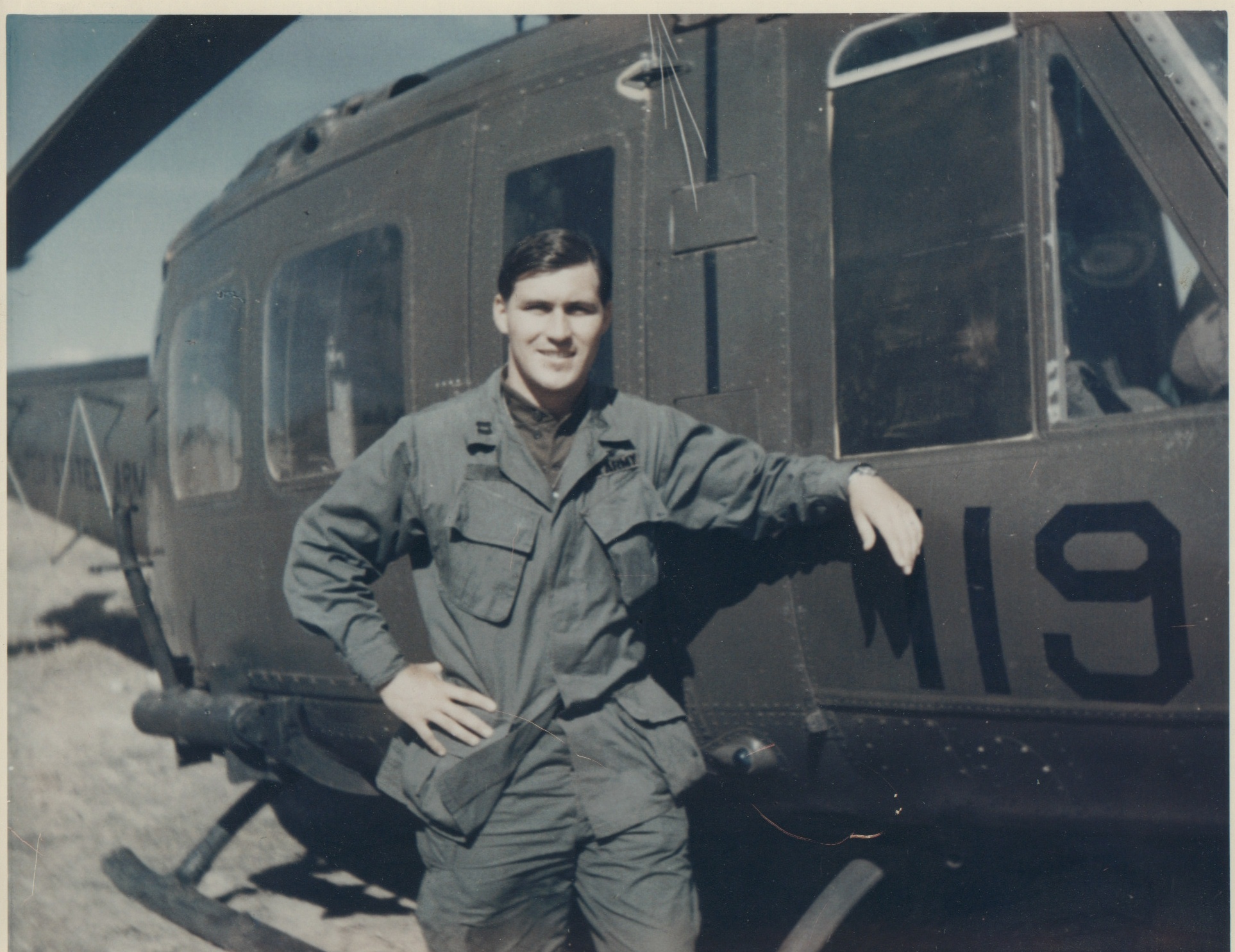
Jaws of Death
(Captain Jack Heslin - Silver Star Medal)
A Special Operations Force was surrounded.
They had five seriously wounded,
And they needed to evacuate them,
Before they could fight their way out.
I was "Blue One", the mission commander.
My job was to pull out the wounded.
I had five lift ships, plus gunships.
This mission is a "hot" exfiltration.
The friendlies are deep within enemy territory,
Trapped on a mountain side.
The enemy had them cornered and was waiting.
They knew a helicopter rescue would take place.
I launched our package of lift ships and guns.
The Forward Air Controller was working air,
Phantoms were diving in and bombing the enemy.
Anti-aircraft fire was coming out of the jungle.
The radio was chattering with directions:
"Blue One, you are cleared in now."
The pick-up site was a "hover hole".
I dropped out of the sky in a corkscrew approach.
Enemy fire shattered the front canopy window.
My co-pilot was bleeding from his face.
"How bad are you hit, can you still fly?"
"I'm OK. I'm OK. Let's get them out."
In we went, bullets lacing the ship,
A hanging touch down on the right skid.
Wounded loading through the right door.
The rotor blades clipping the branches.
I see an enemy machine gunner in front of me,
Ankle-chained to a tree and aiming at me.
My left door gunner opens up on automatic,
Blasting the enemy from his killing perch.
Wounded on-board, lift-up and fly away,
Enemy gunfire tears our ship apart.
I'm bleeding power and going down.
"Blue One going down. Mayday. Mayday. Mayday."
I see an opening on the "Ho Chi Minh Trail" below.
I'll land on the road, and we'll fight from there.
I auto-rotate in with the last element of power.
We hit hard and bounce twice: "Everyone out!"
The crew grabs their machine guns and ammo.
I grab my automatic rifle and pistol.
The enemy is all around - they are running away.
They are afraid, they think we are attacking.
The chase ships come in right behind us.
They quickly load the wounded on one bird.
My crew and I jump aboard the other bird.
It is up and away from the jaws of death.
"Momento Mori"
(Don't forget to die.)
The mission is into the A'Shau,
This is a major enemy infiltration route.
They are planning an attack on Hue.
You are tasked to interdict the enemy.
All six teams will go in loaded heavy.
Take extra ammo, water and rations.
You'll need spare radios and batteries.
You'll be given artillery and air support.
Select your sites to offer protection.
The NVA will want to eliminate you.
You are protecting Hue from assault.
Get it right, harass and slow the enemy.
Captain Butler's Flag"
(Silver Star Medal)
It was going to be tough.
Six teams in blocking positions.
Six teams of twelve men each,
To stop an enemy of thousands.
This was an in-country task.
We were to be inserted.
The choppers would fly low,
And we would go in heavy.
The A'Shau valley was bad.
It was known as NVA country.
They had even built a road -
We called it, the Expresssway.
The team was briefed by staff:
"Lam Son 719" was going into Laos,
And we were tasked to screen,
To block and interdict the NVA.
This was a very large operation.
The Commander wished us luck,
And each team went off to prepare;
Extra ammo, water and weapons.
The insertion went as planned,
And we secured and dug-in,
Preparing for the fight to come:
Waiting for the NVA to attack.
They came down the valley,
A regiment two thousand strong,
And we targeted the enemy;
Dropping mortar rounds in their ranks.
They directed forces to attack us.
They came up the hill in waves.
Our machine guns blasted at them,
We discharged our claymores.
The original attack faltered.
They left behind one hundred dead.
We had suffered but a few wounds,
None serious, but night was coming.
We prepared for another attack.
We uncased and prepared mortar rounds.
We went back out and set-up claymores.
We bandaged wounds, and dug in deeper.
The attack came as we had thought,
This time, creeping up upon us.
But we knew, they were there,
And we blasted them as before.
Once again, we had beat them back.
We could hear the cries of the wounded,
And this time, we had one dead,
And more wounds to bandage.
The next day, they streamed past,
Staying well away from our hillock.
But we blasted them with mortar fire.
We called air support in on the kill.
After noon, they came at us once again.
This time, they used artillery and mortars,
Explosions of steel, to keep us down,
Before they attacked right up the hill.
We came back up, wounded and bloody.
We blasted them, our guns burning hot.
It was smoke and dust, and cordite:
It was our place and time to die.
But once again, we stopped the enemy.
Our ammunition low, exhausted,
We knew our end was soon to come,
But none among us showed his fear.
On the radio, I had listened:
As the other teams fought their last.
Five teams gone, all their men dead.
Only my team still survived; surrounded.
I took out my American flag.
I attached it to a long antenna,
And I flew it from our hillock of death.
If I was to die, I would do it, my way.
We grimly awaited the final attack,
When a Forward Air Controller called:
"Captain Butler, I have extraction ships,
You are ordered to exfiltrate."
And the helicopters came from high,
Circling down rapidly to land.
The wounded and dead were loaded.
I climbed aboard and we lifted off.
We broke away low and flying fast,
Enemy fire ripping the ship.
When I counted, one man short,
One man not on the helicopter.
It must be so, back we must go.
As we circled, we saw our man,
Who had been blown off the hillock,
Back up and waving the American flag.
In we went to pick him up.
He was bloodied and wounded,
But smiling, as he jumped aboard,
And once more, we were out of there.
Note: Of the six Recon Teams inserted to block the NVA regiments from transiting the A'Shau Valley to attack Hue, the old imperial capitol of Viet Nam, Captain Butler's Team was the only one to return to base.
Airial Reconnaissance Mission
It was the Monsoon Season in Viet Nam.
We took off from Thailand flying east.
We needed to make a radio contact in Laos
With a Reconaisance Team on the ground.
The weather deteriorated as we flew east.
The visibility of the ground was spotty.
"I can not find this lake on my map."
"Oh shit! That's "Bat Lake", we're too far north."
"We're over North Vietnam. I''ll drop below the overcast.
We'll head west. Try to find a river or road below."
"You're O.K. That's the old Khe Sanh Base below
And I see Route 9, just follow it west."
We fly low below a one thousand foot overcast.
"Below is the Xepon River, we're now over Laos."
"There are guns along the road, 37 and 57 millimeter.
The NVA manning them are eating breakfast."
"They hear us and they're running to their guns.
I'm shooting photo's from both camera's, bank right!"
"O.K. That's enough. I'm out of film, take her up!"
That was incredible, a gun every fifty meters.
"They had radar mounts on some of the guns."
"We were lucky that they were not expecting us.
With that many guns and radar control firing,
We would've been shot to pieces in good weather."
Landing Zone Lolo
(Lam Son 719 - March 3, 1971)
The troops scramble aboard the ship,
Another lift into mayhem and terror.
We are number nine in the gaggle of twenty,
One hundred and sixty troopers to be inserted.
The Landing Zone is strewed with wreckage,
Hueys crumpled, rotor blades broken off.
I hope they got out, but it does't look good.
Others burned and blackened, still smoldering.
Lead drops down, the enemy opens fire from below.
He is touchdown, troops jumping off, he's out.
Number two and three touchdown and lift off.
Number four hit bad: "Mayday! Mayday! Mayday!
Some jump before it impacts and explodes.
Five in and out, six explodes in the air.
Seven shot up going in, he cannot lift off.
Eight in and out O.K. It is our turn now.
We approach through red balls of anti-aircraft fire.
We're touchdown, disgorging the troopers.
An enemy machine gun gets the range:
Windshield smashed, bleeding from fragments.
Apply power, lift off, get height, swing wide,
Get away from the killing guns - back to base.
We have two more inserts to perform today.
I hope we live or at least die quickly.
Pilots and crews performed with extraordinary valor in the face of accurate radar controlled enemy anti-aircraft fire.
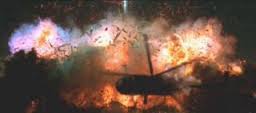
"Lam Son 719" is the code name.
Vietnamese forces from the south
Will attack the North Vietnamese Army.
The helicopter pilots will fly support,
Lift, supply, and Med-evac.
This battle feels different.
This battle will take a toll.
We fly in without opposition.
The troops are on the ground.
It seems too easy at first,
But, that changes within days.
The attack extends too far.
The enemy brings in reinforcements.
Our forces are hard pressed,
And the casualties mount.
Using heavy radar controlled guns,
The enemy gunners take their toll.
They know where we are going,
And they are dug-in, waiting for us.
They let the lead chopper fly over
And then open up on us from below.
Accurate fire knocks our aircraft down.
Everyone of us is a flying target.
"Joker down! - No survivors!"
The radio calls are crowding the net:
"Chalk One hit and going down!"
"A Cobra just exploded in the sky!"
It is time to pull out!
It is time to withdraw the troops!
They are surrounded and in trouble.
A sense of foreboding is present.
The soldiers must be evacuated.
We must go in and get them out.
The flying is non-stop. Everyday.
Panicked troops swarm the helicopters.
We lift as many as we can carry,
Returning again and again for a new load.
This battle is now a desparate retreat.
It takes courage, luck and more courage.
The aircraft take hits and spiral in.
Men are lost and not recovered.
The situation is beyond desparate,
It is a roll of the dice with Death.
A victory is claimed by both sides.
Most of our helicopters are lost.
More than half of our pilots are dead.
Only the survivors are victorious.
South Vietnamese losses were more than 7,000 killed, wounded or captured.
North Vietnamese losses estimated in the same range as the combined totals of the attacking force.
Bennie Adkin's War
(Medal Of Honor)
Two defectors came into camp.
I did the debriefing of them.
The enemy was going to attack
As soon as the weather turned bad.
I prepared my mortar pit:
We uncanned our deadly rounds
And reinforced with sandbags,
Brought in extra water and rations.
The attack came five days later.
The fog was thick and visibility low.
The enemy fired mortar rounds.
It was midnight and the fight began.
We fired back with our mortars.
The enemy probed our perimeter.
They were in the minefields.
They were cutting through the wire.
We had preplanned targets.
I called for artillery support.
I fired our mortar rounds in the dark.
I waited for the enemy to appear.
Through the wire, they cut a hole.
A head popped up in the dark.
I shot him with a three round burst
And now I was in a shooting gallery.
The fog and night twirled together,
But heads keep popping up in the dark.
I lock, load and fire,
Killing one hundred that long foggy night.
When dawn arrived, a quiet settled,
With only the cries of the wounded heard.
We bandaged wounds we had suffered
And fetched more water and ammo.
The aircraft were high above.
On the radio, I talked to them.
The enemy was danger close
And the fog was pea soup thick.
Surrounding the camp were enemy guns,
Waiting for the American airplanes.
And when they rolled in to attack,
The enemy guns blasted away at them.
The battle raged throughout the day
And the casualties mounted each hour.
Thirty-seven aircraft were lost
And the enemy took half the camp.
We organized a counter-attack.
With grenades, we attacked our foe,
And he fought back with his grenades.
We were repulsed by the deadly shrapnel.
Many times wounded and bloodied.
We fought on throughout the day
Until the order was given:
"Abandon A-Shau Firebase!"
The lift ships came in fast.
We loaded the wounded.
We started evacuating our soldiers.
The enemy never slackened his fire.
One wounded American is missing.
Back we must go to carry him out.
In the confusion of battle,
The last helicopter left the camp.
Into the jungle we carried our comrade.
Into the night we fled the enemy.
The enemy pursued us, intent on our death
And we thought the end was near.
We heard the roar of a jungle beast.
In the night, a tiger tracked us.
The enemy pursuit stopped,
With the roar of a tiger in the night.
Our wounded comrade died that night.
With the dawn, we were able to signal,
A helicopter came to our rescue.
We escaped death that night in the jungle.
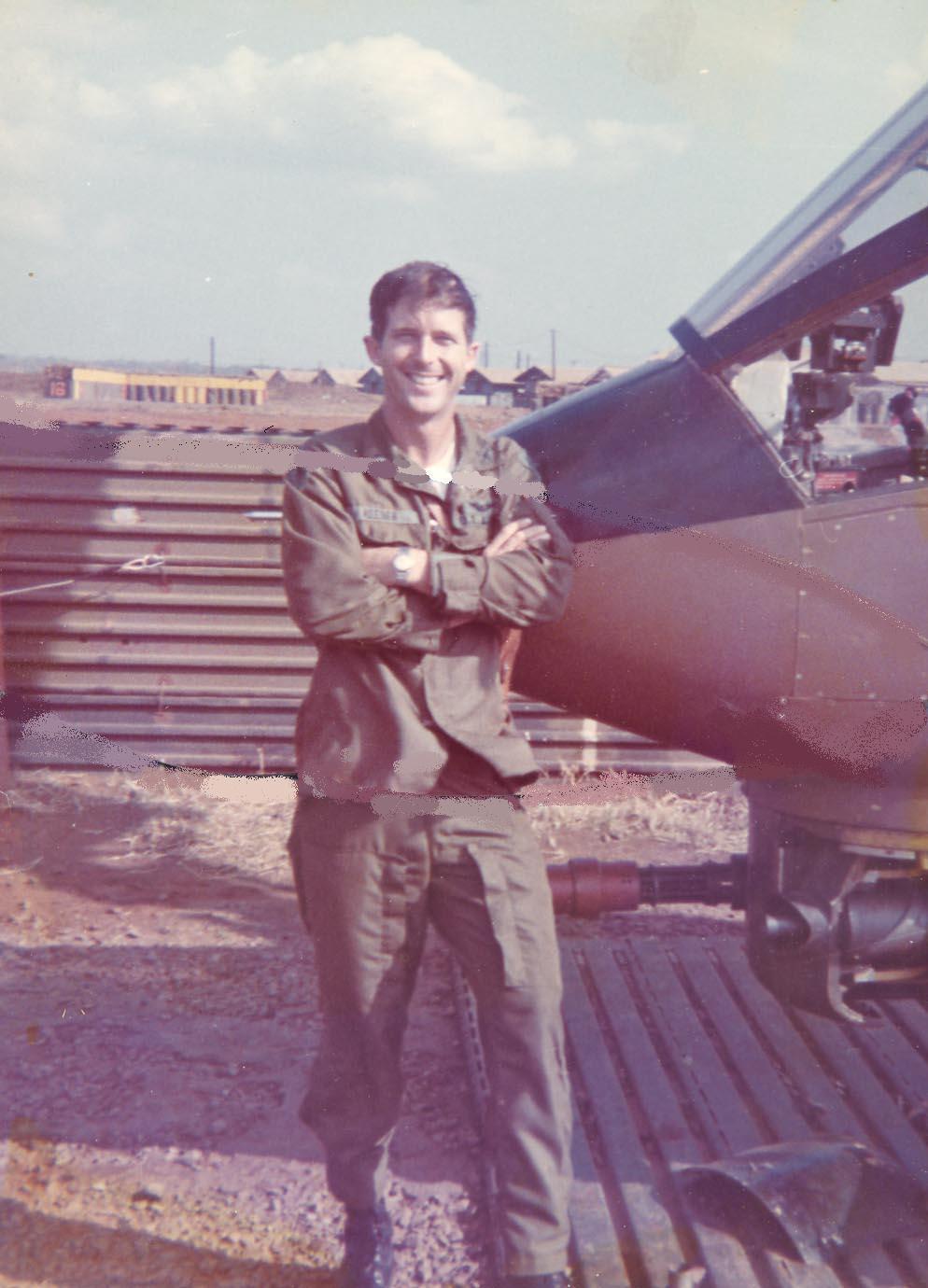
Dance Of Death
(Panther 36 - Bill Reeder)
(Panther 13 - Dan Jones)
Silver Star
"Panther Lead, this is Dusty Cyanide."
"Dusty Cyanide, this is Panther Lead."
"I have multiple targets for you,
All fifty-one caliber machine guns."
Panther Lead was given locations,
Advised that the guns were all hot,
And that the gunners were eager.
He flew off into the sun, to set-up.
I watched him come out of the sun.
He was targeting the high gun first.
He flew straight into the gun,
Blazing away with his mini-gun.
From the hilltop, the gun opened fire.
The green and red tracers crossing,
Then the Cobra fired his rockets.
The gunner and gun vanished in the explosion.
Four times I watched this performance.
It was a dance of death between gunners.
The North Vietnamese lost this fight,
Four gun crews destroyed, four guns taken out.
"Dusty Cyanide, this is Panther Lead.
Be advised, running low on fuel
And I'm bingo on ordnance.
Enjoyed the hunt, do call on us again."
Ben Het was surrounded
And tanks were in the wire.
The situation was critical
And resupply was necessary.
Into the breach once again,
Flying protective cover
For a resupply mission.
Suppressive fire got us in.
The resupply birds landed,
Kicked off the ammo and water,
And it was up and out of there.
Enemy fire riddled our ship.
My Cobra now in flames
And no longer flying.
Into the ground with a crash -
Fire soon to engulf us.
Blood and wounds disregard,
Crawl out before it explodes.
Get away from the crash site,
For the enemy is all around.
The Cobra explodes it fuel cells.
The ammo cooks off as I crawl.
I'm dazed, bleeding and broken,
Crawling away, from burning death.
Three days and three nights,
I hid in the jungle,
Wounded from shrapnel,
Only able to crawl slowly.
My escape from the enemy,
It ended on the third day.
I was covered with leaches,
Wounds festering, not able to walk.
Interrogation, was brutal,
And after a couple of days.
I was marched to a prison,
A bamboo cage in the jungle.
Others were there in prison,
Some even in worst condition,
Little food, no medical care.
Soon we began to die.
In time, a group was formed,
We were to march north,
All the way to Hanoi,
A journey of many months.
Many did not make it.
They died of jungle disease.
They died of untreated wounds.
They died when the day was done.
My fellow prisoners gave hope,
When all seemed hopeless.
With difficulty and help,
I made the longest of journeys.
Poets note: I wanted to tell more about the prisoner of war story, so I asked "Bill" Reeder to expand on his story. The following four poems are his story but reflect the experience of prisoners depravation, endurance and torture. Hope was the one word that rang loud for all of them. What they endured, we can only imagine.
Prisoner Of War Story
(Colonel William "Bill" Reeder)
Captured
(May 11, 1972)
My Cobra gunship shot down.
My front seater got out and ran.
I was hung-up on my seat.
The fire was all around me.
Finally, I got loose and tumbled out.
I crawled away from my burning death.
The helicopter blew up as I crawled.
My back hurt, my leg wounded.
For three days I evaded the enemy.
The burns on my neck from the fire
Festered and leeches attached to me.
I slid down a hill and heard voices.
I stayed quiet. They must have heard.
Five enemy soldiers surrounded me,
Their guns motioned me up and forward.
I was a prisoner of the North Vietnamese.
That was my moment of being captured.
I'd been caught, I was no longer free.
I had a terrible sinking feeling from within:
Despair, anxiety and the loss of my fate.
I was rope tied up and interrogated.
I told them when asked: "My back hurts."
They tightened the ropes, both my shoulders popped.
The interrogation continued for three days.
Bamboo Cage And Stocks
(May - June 1972)
Boots and socks taken away.
My hands bound behind me
Three days on the march
Into captivity in Cambodia.
Prison, a bamboo stockade in the jungle,
Surrounded by a moat with a cross-over log.
I scampered across without falling in.
My small cell held twenty prisoners.
The prisoners were seated in a row.
Their feet protruded from a stock log.
They chiseled larger holes for my feet.
I took my place in the row of prisoners.
We were fed rice soup twice a day.
We were given water once a day,
And allowed out once a day
To perform our bodily functions.
For two months, I remained in my stocks,
My bamboo cage four feet high.
Wounds festered, infections and death.
Burial details were daily routine.
A group of twenty five Vietnamese officers
And two American pilots was assembled.
We were told we would be marching north,
Where a better camp and more food awaited us.
They said the journey would take eleven days
And that we must keep up with the group.
Loosely tied together, with six guards prodding,
We began our journey to a better prison.
Four Hundred Miles
July - October 1972)
Barefoot, we began our journey north.
My ankle was still infected and swelled.
It was two to three times normal size.
The pain was constant, the march agony.
The journey was all the way to Hanoi,
More than four hundred miles over trails,
With creeks, rivers and mountains.
I was not sure I would make it all the way.
I was unable to get up, I tried.
I tried and I tried again for I knew
That when you fell out between stations,
A rifle shot ended your jungle trek.
Xang, a Vietnames pilot came to me.
He pulled me up and became my crutch.
I had been that close to death and I knew it.
Xang had saved me, my captives berated him.
The next day, I could not cross the log
That led away from the way station.
I fell twice into the river trying to cross.
They dragged me out and held me back.
My group proceeded without me on the trail.
Seven Vietnamese died on this march of agony.
The other American pilot also perished en route.
The struggle for life was too much for them.
I joined the next group one week later.
A fever from malaria racked my being,
But I walked, each step a challenge.
I arrived in Hanoi, my death march ended.
Hanoi Hilton
(October 1972 - March 27, 1973)
They fed me green sprouts and bread.
I cried, "It was a feast in my condition."
At that moment, I knew I would survive.
I had endured beyond my endurance.
During the Christmas Season of '72,
The bombs fell on Hanoi every day.
I knew that we were not forgotten.
I gave thanks to the American people.
The fever was ferocious and it consumed.
It consumed my strenght, my energy,
It consumed my life flow with malaria.
I had three different strains of malaria.
A Doctor in prison demanded help.
The North Vietnamese relented and treated me.
They gave me quinine to break the fever.
Back from the brink, I slowly recovered.
I wanted liberty, freedom and life.
America would not abandon me.
I had faith, I had hope, I believed.
I walked off the "Freedom Flight" liberated, head high.
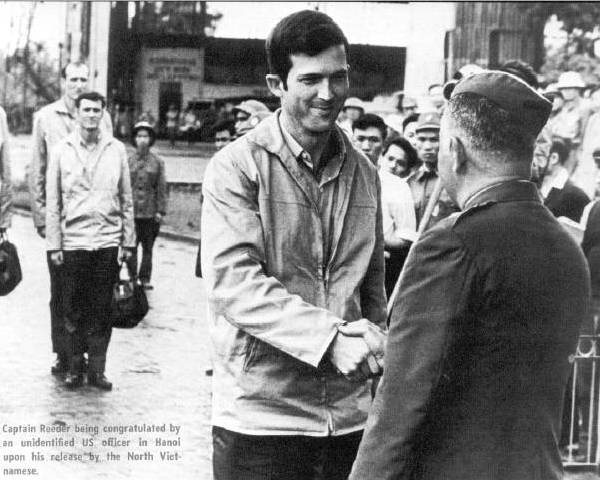
The Rescue Of Tim Conry
(5-09-72)
(Captain James Stein)
A Cobra gunship was down near Ben Het.
A rescue aborted before being completed.
Command and Control contacted me:
"Can you get there and get the job done?"
I was flying a light observation helicopter;
A bubble with a rotorhead on top
And a tail boom with stabilizer prop.
My observer and I agreed to try.
It was dark over the rescue area,
Fires burning and smokey haze over the battlefield.
It took us awhile, but we found the downed bird.
It had burned, but no sign of the crew.
I advised control: "I'm turning landing lights on."
The enemy opened fire on our lite-up ship.
I had the covering gunships suppress fire.
I searched for the pilot, and spotted him.
Tim Conry was on his knees holding his radio.
He talked to us, but could not move.
I touched down, my observer jumped out,
He carried Tim to the aircraft and we took off.
It was low-level flying through the enemy guns,
To the hospital near the Plieku Airfield.
The medics were waiting and we off-loaded.
I followed the litter into the emergency room.
The doctor started checking Tim's vitals.
He stopped his work and turned to me:
"This man is dead, he's gone. I'm sorry Captain."
I was stunned, I couldn't believe he died.
We had saved a downed pilot from death.
We did not expect to make it out of there.
He was on his knees and he spoke to us.
He knew that he had been rescued.
I landed at the revetment area.
His mates were gathered, I told them:
"He is dead, we got him out, he died."
He died knowing, we did not leave him behind.
NOTE: Captain Jame Stein, Call Sign "Scout Hunter Lead" is indeed a pilot with "balls of brass", he had the unique distinction of having been shot down 10 times in two tours in the Viet Nam War.
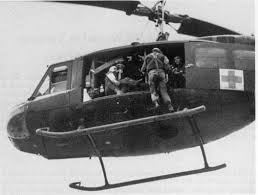
"Take her in, hold it!
"Disregard enemy fire!"
"Get the wounded loaded!"
Up and out of here.
We'll run the gantlet.
Enemy fire "pinging" our ship.
"We made it, we're out."
"Check for wounded and dead!"
The instruments look good.
Treat the wounded enroute,
Get them to hospital.
Save a life this day.
An everyday job in war,
A medical-evacuation.
Flown by pilots and crew:
All hero's, everyday.
A Routine Flight
(Colonel Garrett Marcinkowski)
A routine pick-up and return flight.
Our aircraft had been grounded in Saigon.
Maintenance had corrected the problem.
We took off from Pleiku in the Highlands.
In Saigon, the problem had been repaired.
In our pre-flight, we found a new problem,
The attitude indicator and the gyro,
Were rusted together from moisture.
The mechanics in Saigon didn't have replacements.
We decided to fly back to our base in Pleiku
Where we could switch out the bad parts for new ones.
It was a bit of a risk if the weather turned bad.
These were the attitude and level flight indicators.
If the weather stayed clear, we should be O.K.
About half way there, the weather closed in on us.
This was decision time, I decided to turn back.
Heading back to Saigon, the weather was "pea soup".
I couldn't see in either direction, I headed high.
Above the overcast, I found an opening to the west,
I decided Pleiku was the only choice I had.
I called the flight control tower and advised them:
My instruments were out and I would need a talk down.
With an emergency declared, I had priority to land.
Control vectored me through the mountains toward the airfield.
A clear hole opened, I took a chance.
I advised Control that I was veering off flight path
And coming in through an opening with ground in sight.
I saw the airfield, landed without incident and gave thanks.
Note: Weather and mountains were the norm in Vietnam, over ten thousand aircraft went down. Not all were to enemy action, weather, mechanical problems and pilot error all contributed to the grim tally.
The Mexican Sergeant
It was in the Viet Nam war.
I was a Platoon Sergeant.
I told my platoon early on:
"I am the Mexican Sergeant."
My troopers liked "Sergeant Mexican",
They thought I was lucky for them.
It was many a firefight we fought
Without the casualties others had.
One day, the platoon was ambushed.
Of the twenty-eight men, most were down.
Six men followed me out of the ambush
And each of them had also been hit.
I had been hit three times,
But we had men who couldn't get out.
I rallied my bloody six, gathered some more
And it was back we went once again.
All were killed and I was hit six more times,
But we killed all of the enemy
That had killed all of us, but me:
Wounded and bloody; no longer lucky.
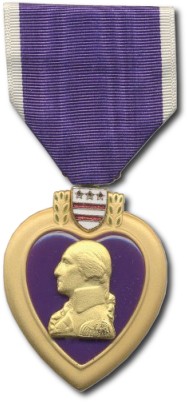
The Purple Heart
He stood in the enemies path.
He showed not his fear,
And fought the battle through.
His blood was the price of victory.
This is the man - all men honor.
He is the true hero in combat,
Be he a Private or a General,
He stood where others did not.
Let all others honor this man.
His wounds speak louder than words.
His disabilities are his badge of courage.
His feats are this nations "Glory".
Cross Fire
(Colonel Franklin Trapnell, Jr.)
A NVA attack on a moonless night
Began with a rocket flashing me awake.
It detonated after passing over my head.
The mortar rounds began impacting all around.
We hunkered down and prepared our weapons,
Ammunition ready, we knew they would attack.
They had sappers in the wire, we heard them.
We set off our Claymores and blasted them.
The tracer rounds crossed as we repelled them.
The NVA infiltrated through the village hamlets.
The dry thatched roofs caught fire in the village,
Villagers escaped into the bomb shelters for safety.
At dawn, the NVA withdrew from the village,
Attempting to cross a river, fleeing retribution.
Cobra gunships above called in at first light
Spotted the retreating NVA and blasted them from above.
In the village, death resided in the bomb shelters.
As the burning fires raged above, frightened villages huddled.
We found them asphyxiated, one hundred and fifty victims,
Caught in a crossfire of death, destruction and war.
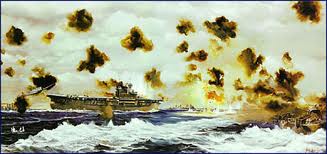
(WWII-Midway, June 1942)
The war was going badly in the Pacific.
We had lost our battleships at Pearl Harbor.
We had fought at best, a draw in the Coral Sea.
We needed a decisive victory over the Japanese.
They broke the Japanese naval code:
An attack on Midway was being planned.
They wanted to lure our carriers into battle.
Admiral Nimitz's order was clear and simple;
Ambush and attack a superior Japanese fleet!
Sink the carriers and pursue the remnants!
Execute with stealth, surprise and force!
The plan was executed as it was envisioned.
Not everything went smoothly: we lost planes.
The Yorktown was hit hard, it recovered steerage,
It was hit again; this time going to the bottom.
The aviators were instrumental to success.
With fierce determination and courage, they engaged.
One entire squadron was destroyed in the attack,
But dive bombers got through, causing havoc.
Three Japanese carriers were sunk in the initial phase.
The last carrier was damaged and steamed away.
The next day, the submarine "Nautilus" spotted her.
Three torpedoes launched, sending her to the bottom.
The defeat was total! The victory was monumental!
The Japanese war machine was in retreat,
Without any chance of recovering momentum.
The United States Navy was "Master of the Sea"!
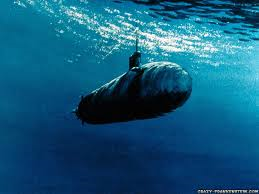
Only the best sail in submarines.
To the sea, a sailor I shall be.
That is where I shall do my duty,
In the depth of the ocean blue.
When I am in training, they tell me:
"That there are only two types of ships.
There are the submarines that hunt,
The rest are targets."
A mariner below the rolling waves
Is a hunter prowling in the deep.
Always silent, always seeking, never careless,
For the price of failure is eternal.
A submariner can seek and destroy.
A torpedo on target, sends the enemy down.
A missile fired from the deep blue sea
Can destroy an enemy without retribution.
A submariner is an elite sailor,
Operating where others fear to go,
Destroying silently, and always vigilant.
Sail silent! Sail deep! Sail dolphin sailor!
Off to war I must go.
I train and learn to fight.
A rifle, a bayonet, a grenade,
I know how to use all of them.
Into a battle we all march.
The shells are exploding all around.
Everyone is terrified of death,
We cling to the earth and pray.
The attack comes right at us.
They are shooting and yelling.
We blast them as they near us,
But they keep coming at us.
A bullet flies through the air.
Will it hit my mate or me?
Only the Gods know the outcome,
Who will live and who will die.
My comrade lies at my feet,
A bleeding hole in his forehead.
He is dead and it is not me.
Only the Gods know the reason.
The battle ends and some still live.
My friend is dead and cares not.
I mourn his loss, but rejoice
That it was him and not me.
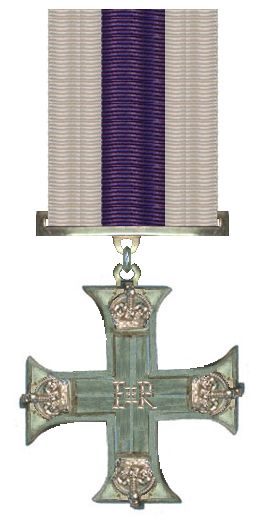
(Corporal Richard Clark)
(Military Cross, United Kingdom)
It was a combat assault in Afganistan,
We infiltrated at night by helicopter.
The Battalion was in the attack.
I was the Corporal leading the point.
My squad was alert and ready.
The movement took longer than planned,
Over an hour walking through poppy,
It was late season and the growth was high.
We hit the compound, it was recently deserted.
The Taliban had fled into the dark night.
The Apache helicopters saw their infrared images,
They gunned them down before they could escape.
We secured the compound and waited for dawn.
A mud seed barn with firing slots was nearby.
We watched as Taliban secured the position.
At dusk, they opened fire on our locations.
I told the commander: "We are ready!
Give us the order, we will take them out."
He paused and considered his options.
He signaled "Thumbs Up!", that's all we needed.
Into the attack down a long high wall
And then we crawled closer to the enemy.
At one hundred meters, we opened fire.
We blasted them, I and one trooper flanked them.
At ten meters, we engaged with grenades.
Then we opened up, raking the enemy.
Three of them escaped, the rest we killed.
This was one small engagement in a long hard war.
Whispers From Beyond
The battle was ferocious.
I fought my very best.
I stood and I did not run,
My buddies stood beside me.
The enemy was determined.
The cost he paid was high,
But, he attacked and attacked,
Until we fought hand to hand.
The soldier that killed me,
He was young and he was strong.
I thought I could take him,
But, this time, I was wrong.
I hope they have a ceremony:
With casket and a draped flag,
To present after the salute volley.
Be proud of me as I did my best.
I have been in many battles.
I have known glory and heroism,
I have been proud of killing.
I have been decorated for valor.
I have seen the bodies of friends,
Youthful, barely able to shave,
Dead in their youthful glory -
Life not yet lived, family grieved.
I have notified widows of death,
A husband killed in action,
Serving the demands of his nation,
The children too young to understand.
It is always the politicians,
And the media who call for war.
It is always the young men
And the young women who do battle.
The flag draped coffin comes home.
The words are spoken of heroism.
The bugle blows and rifles volley,
And the casket is lowered eternal.
It is not that we should stop war.
It is that we should not love war.
A politicians rhetoric is most heroic.
The media magnifies the call to arms.
As an old soldier and airman,
I abhor the folly of politicians rhetoric,
And I fear the volumn of the media's drumbeat.
Too many love war, few heed the call to battle.
Airborne school at seventeen,
Running, push-ups, and running.
The cadre "black hats" harass,
Yelling in your face for infractions.
Get it right! Get it right!
You want to be a paratrooper,
Get it right all the time.
One mistake puts you, in a box.
The infantry march into combat.
The paratrooper jumps into combat.
The moment you hit the ground,
The enemy is all around you.
Learn to think like a paratrooper.
You are a hunter from above,
Landing in enemy territory,
In a target rich environment.
You want to be a paratrooper.
Make every bullet count.
Learn to live off the land.
Learn to act independently.
Airborne, all the way!
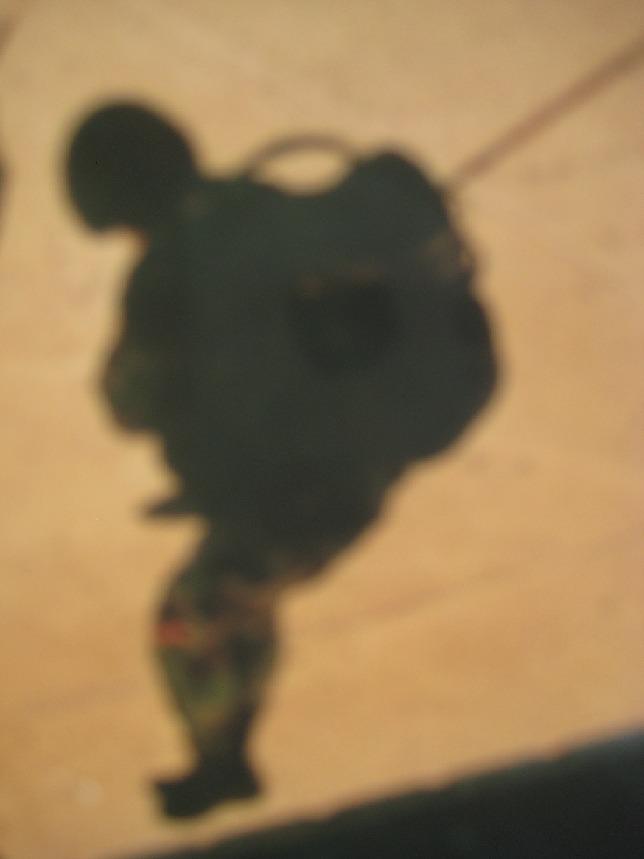
Paratrooper Swan Song
Oh! I'm a fearless paratrooper.
I jump from planes while in flight.
I jump in the day or at night.
I jump with a smile on my face.
What is there to be frightened of?
I'm not at all afraid of heights.
I'm not at all afraid of flight.
I'm not at all afraid of jumping.
Oh! I'm a fearless paratrooper.
On my uniform, I wear jump wings.
On my feet, I wear shiney jump boots.
On my head, I wear my red beret.
It is great to be a paratrooper.
All the men, they stand in awe.
All the parents, they are so proud.
All the girls, they love a paratrooper.
One day, my parachute didn't open,
All the way down I plummeted,
With a smile upon my face,
A fearless paratrooper until the end.
My old airborne comrades,
I met them at the Dragon Club.
I was happy to see them,
They were happy to see me.
Two years since our last meeting.
Now, we greeted each other,
Warmly, as more than brothers,
Smiling in each others faces.
They were all still alive.
Most had a few more scars,
Some were fighting, now up north.
The years showed in their eyes.
We remembered old stories,
Smiling that we still survived,
Laughing at the old wounds,
Knowing we had cheated death.
The drinks were tossed down,
More always being brought.
The mood was of fighting men,
Hard drinking did prevail.
We moved to a terrace
Overlooking Saigon city,
Ordering champagne for all,
Each man catching a girl.
Finally, the night ended.
My girl taking me to bed,
She holding me gently,
I sleeping all too quick.
These men have a style
That comes only to those
Who laugh at Master Death: Ha Ha Ha,
Not caring whether he smiles.
Alpha Male Warrior
The machine takes you in,
And shears the hair you had.
Next, they uniform you,
And give you a title.
It's Private this or that,
But do it now, don't ask!
Salute and say:"Yes Sir",
You are a team player.
Grind you down, day and night,
Low crawl with barbed wire above,
And machine guns firing:
Keep low, and you're O.K.
Not much sleep, always tired,
Wear you down, each day hard.
You automate, no thoughts,
Do what you are told, now!
In time, it really ends.
You are proud to have passed.
Now, you're a Marine,
Standing tall, in dress blues.
You are a trained fighter,
Prepared to execute,
Each command you receive.
You're a killing machine.
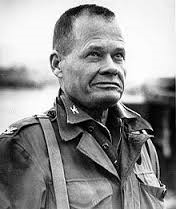
"Semper Fi" Marine
Marines joined as brothers,
That is the essence of loyalty.
To bound together as a team,
Where the mission is the imperative.
This the creed of every Marine.
This is the creed of the fighting man.
To accomplish the assigned task,
Even when life and limb are imperilled.
This the man you can depend upon.
This the man you would risk life for.
This the man you can trust to execute.
This man is your fellow warrior.
From the first shipboard Marine,
To the modern day fighter pilot,
These men work as a brotherhood
Where sacrifice is always the model.
A Marine is prepared for combat.
He is prepared to face his foe and kill.
He is prepared to sacrifice if need be.
A Marine is a hero waiting to execute.
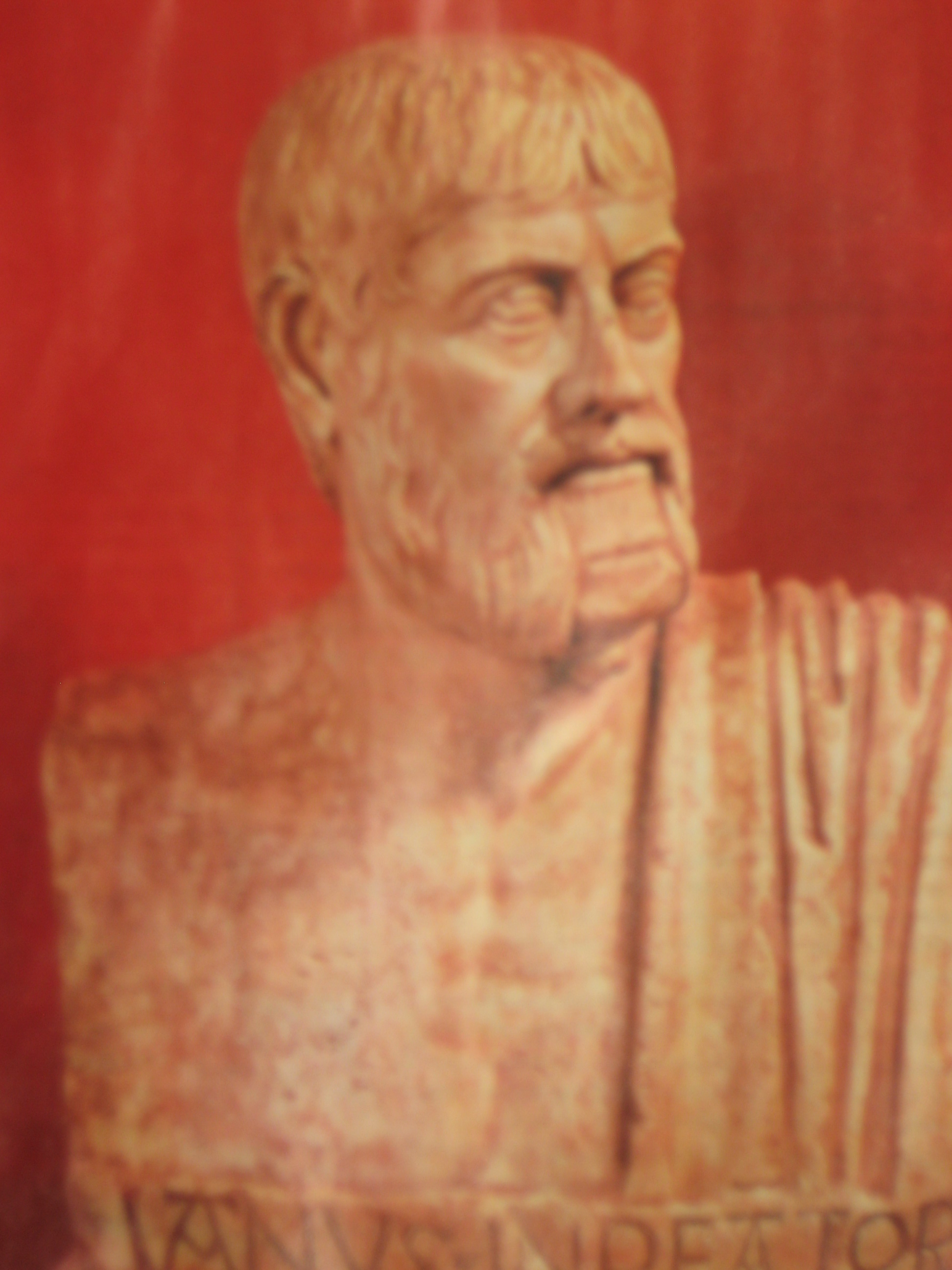
Pause For An Emperor
In the year 363 A.D.,
The Emperor Julian invaded,
The land between the rivers:
Mesopotamia, as the Greeks spoke.
With more than one hundred thousand
Of his best Legionaries,
He advanced into the heartland,
Of the old Persian Empire.
Victory and success came early,
But the deeper he advanced,
The more oppressive the heat
And the stronger the resistance.
On a June day in that year,
His columns were attacked:
First in the rear, then in the front,
And finally in the center.
The Emperor rushed to and fro,
Until a spear thrust into his liver.
Felled from his horse with a mortal wound,
He died that night, between the rivers.
After The Parades
A soldier fights our wars,
He goes where he is told to go.
Our enemy is his enemy.
Our interest is his to execute.
The wars are fast and brutal,
Or they can drag on far too long.
The soldier is not asked his view,
His is to do or die trying.
When he is killed in combat,
We honor him and we mourn him.
Should he be wounded or injured,
We tell him we'll take care of him.
When the war comes to an end,
And the veterans return home -
The hospitals become crowded,
The doctors become over burdened.
It is sad to see soldiers waiting.
It is sad to see their frustration,
As the hospitals and the staff
Do their very best to treat them.
But, when the danger has passed,
The parades and medals done with,
The soldier is no longer needed.
Too soon, the soldier is forgotten.
Until it's us and those around,
Friends, kinfolk and family
Who are dying, maimed and injured.
Then it's peace, we all want peace.
It's the foolish politicians we blame.
They did it, we didn't know the trauma,
We didn't know the cost, we didn't know.
But, when the war drums beat loud,
We march to the beat with a stiff back,
We hold our heads high, our jaws jutting out.
"Lock and load, we'll kill them all."
Fools in peace, fools in war,
Foolish we are, whatever the time.
Wars are death and destruction.
Wars can kill us all, don't march to the beat.
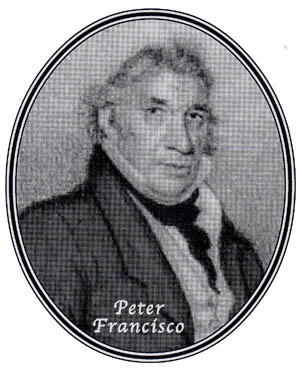
Peter Francisco, Giant of the Revolution
In 1776, at sixteen years of age,
He enlisted with the Continentials:
George Washington's Army of Revolution,
To fight for American independence.
He was a giant in his time,
Standing tall at six feet six,
And his strenght was legend,
As were his swarthy good looks.
He fought at the Battle of Brandywine,
In September of 1777.
While stemming the tide of retreat,
He was hit in the leg by a musket ball.
His wound quickly healed,
And he next fought in October,
At the Battle of Germantown.
He once again fought a rear guard action.
Peter Francisco wintered at Valley Forge,
Enduring hunger, cold, and depravation.
He was ill for two months in hospital,
Where he toughened, and hardened.
At the Battle of Mommouth Courthouse,
George Washington rallied his troops,
And fought the British to a stand-off.
Peter was again wounded by a musket ball.
On July 15, 1779, close to midnight,
Peter Francisco was one of twenty,
Members of a "forlorn hope" assault,
Selected to retake Stony Point Fort.
The surprise attack succeeded.
Peter killed three opponents,
In close bayonet fighting,
Suffering a belly slash in turn.
Though wounded, he perservered,
The first man to reach the flagstaff.
He hauled the British flag down -
And resistance soon ended.
Once again, after a lenghty recovery,
He joined up with a newly formed militia,
And they skirmished at Camden,
On August 15, 1780 in South Carolina.
The militia broke and were routed.
Peter tried to rally his compatriots,
But, the fear and panic were too much -
Even the officers fled in panic.
Seeing a Redcoat taking aim at his Colonel,
He bayoneted him before he could fire.
Another cavalryman charged the two;
Francisco stood his ground, bayoneting his foe.
Peter took the dead troopers horse,
Mounted him, and went to rejoin his Colonel,
Who had been captured by a Red coat.
He cut the soldier down, and freed his Colonel.
Alighting from the captured steed,
He urged his Colonel to mount and ride off.
He then spotted an abandoned field piece,
And rallied men to turn it on the British.
Another cavalryman burst from the woods,
Reared his horse and demanded Peter's surrender.
He once again bayoneted the trooper,
Grabbed the horse and escaped.
George Washington, hearing of the deeds,
Ordered a special five foot sword for him.
It was delivered on March 13, 1781,
Just before the Battle of Guilford Court.
At the battle, the British were attacking.
When the bugler sounded the charge,
And with Peter Francisco mounted,
He led a fearless charge into the Redcoats.
He rode roughshod over their ranks,
Swinging his great broadsword.
He personallly killed eleven enemy,
Before a bayonet pierced his leg.
Francisco cleaved the grenadiers head apart
With his broadsword, and unpinned his leg.
He then charged a British square,
And suffered another bayonet wound.
Francisco wheeled out of the action,
Rode a short distance before tumbling down.
Wounded twice and bleeding he lay,
Until found by a Quaker after the battle.
He was slowly nursed back to health,
And in time rejoined his Regiment.
General Washington offered him a commission,
But Peter turned it down as he could not read.
He was given a position as scout,
Operating independently, seeking intelligence.
He was captured by nine Redcoat cavalrymen,
While operating behind enemy lines.
They left him in charge of one trooper.
He killed the trooper, suffering another wound.
Peter captured all the mounts plus one Redcoat,
And the remainder fled for their lives.
George Washington spoke of Peter Francisco:
He called him, his one man Army.
He said: he is the "Giant of Virginia",
And our "Hercules of the Revolution".
At the surrender of the British,
On October 19, 1781 at Yorktown,
He stood among the heroes of the revolution,
He stood taller and braver than all.
Tay Ninh Forest
The battalion was alerted,
It would be the Tay Ninh Forest,
Into the infamous "Parrot's Beak",
Where Viet Cong controlled the jungle.
It was an air-assualt in,
Locked and loaded, ready to go.
The paratroopers knew this fight
Was going to be hard and bloody.
Resistance was light on landing,
And we quickly set up security:
A perimeter dug into the jungle,
Patrols sent out, reports of "no contact".
It was the third day in
That the situation began to change.
We were no longer safe from fire,
They had us zeroed in and pinned down.
The fog of war was upon us.
No one knew where the enemy was.
His tunnels were under the jungle.
He could come at us from anywhere.
Each day the casualties mounted,
The dead and wounded evacuated.
But soon, we could not fly our ships,
The fire and rocket were too intense.
Each day was worst than the last.
Each day we had fewer paratroopers
To fight the enemy we could not see.
Only explosions and death were constant.
At last, we were pulled out of there.
The Colonel had lost his right eye.
My face and leg were bloodied..
All suffered wounds from rocket blasts.
The Tay Ninh Forest does belong
To the Viet Cong and NVA.
The tunnels give them control
Of all who venture in there.
Heroic Engagement By Vietnamese Paratroopers On The Southern Front In "The Battle For An Loc": EASTER OFFENSIVE of !972
The Vanguard
My old airborne comrades,
I met them at the Dragon Club.
I was happy to see them,
They were happy to see me.
Two years since our last meeting.
Now, we greeted each other,
Warmly, as more than brothers,
Smiling in each others faces.
They were all still alive.
Most had a few more scars,
Some were fighting, now up north.
The years showed in their eyes.
We remembered old stories,
Smiling that we still survived,
Laughing at the old wounds,
Knowing we had cheated death.
The drinks were tossed down,
More always being brought.
The mood was of fighting men,
Hard drinking did prevail.
We moved to a terrace
Overlooking Saigon city,
Ordering champagne for all,
Each man catching a girl.
Finally, the night ended.
My girl taking me to bed,
She holding me gently,
SERIES: The Turning Point
On March 30, 1972 the biggest NVA offensive of the Viet Nam War commenced. The equivalent of twenty NVA (North Vietnamese Army) Divisions (14 Divisions plus 26 separate Regiments), supported by tanks and long range artillery, attacked South Vietnam in a three-pronged offensive with the objective of defeating the Republic of Vietnam's Army (ARVN) and subjugating the Southerners to Communist rule. The attack developed on three fronts (South, Central and Northern fronts. In the north, the Quang Tri attack came from across the DMZ (Demilitarized Zone). It broke through the defensive positions of the ARVN forces, and killed, captured or routed the defenders.
After regrouping, the NVA took the coastal city of Quang Tri, routing the 3rd ARVN Division. Their next objective , following the coastal Route 1 line-of-attack, was the old imperial city of Hue. After the fall of Quang Tri, South Vietnam's best General was given command of the Northern sector with orders to stop the NVA advance before it reached Hue, and to destroy all the NVA forces that had crossed into South Vietnam.
Both sides faced off, ready for battle. The My Chanh River separated the NVA from the defending ARVN paratroopers. The following series of poems describe the decisive battles that took place at the My Chanh River and are "The Turning Point" series as a group.
Secure and Hold
(NVA Commander To NVA Tank Battalion Commander)
Your tank Battalion is the vanguard.
This attack is critical to success.
You must cross the My Thanh River ,
Defeat the enemy and hold the crossing.
The enemy is fearful of our tanks.
They fled the battlefield fearing the tanks.
You need only to attack in force,
They will break and they will run.
Your Battalion is key to this plan.
You must push your men aggressively,
Seeing our tanks, the enemy will break,
Defeat the enemy and secure the crossing.
Colonel Minh's Tank Brigade is ready.
He will pass through your crossing,
Leading Divisions 325 and 308.
They will move south and capture Hue.
Your unit is to be the rear guard,
You will follow the 308th Division.
You will also be the Reserve for the attack.
Follow the plan and we'll meet in Hue.
Holding The River
(ARVN Brigade Commander to Airborne Battalion Commander)
(Colonel Lich to LTC Le Van Me)
You are being assigned a difficult task.
The NVA are moving south to attack Hue.
First, they must cross the My Thanh River,
You must defend and hold the river crossing.
I'm attaching two more Airborne Companies
And Two Tank Platoons to support you.
You will have priority on artillery support
And air support including gunships.
The NVA must not cross the My Chanh River.
I've advised the General you are my best Commander,
That you will not let the enemy get to Hue.
He knows your parents reside in Hue, he knows.
Blasting Tanks
My Chanh River Crossing
(NVA Tank Battalion After Action Report)
The Battalion Commander has been killed.
All of the battalions tanks have been destroyed.
Three tankers and eleven infantry survived
And they have all sustained battle wounds.
As the sole surviving officer remaining
I assume command of the remnants of the unit.
My signal group of four are intact and fit.
The Doctor and his two assistants also survive.
The battalion crossed the river at dawn.
The tanks supported by infantry attacked.
It was a frontal assault led by the Commander.
Initially, only artillery fire engaged our forces.
But as we closed, enemy attack bombers engaged,
They flew low level and they were destructive.
Next, within three hundred meters of the enemy,
Enemy tanks engaged plus anti-tank guns.
Within minutes, all of our tanks were destroyed.
The infantry tried to withdraw, but were engaged.
Enemy helicopter gunships killed all but a few.
Artillery blasted those who made it to the river.
It is estimated that an enemy brigade defended.
They must have had two tank battalions in support.
They also had artillery, attack bomber aircraft,
And helicopter gunships with rockets and guns.
The Battalion fought heroically, to the end.
All of our tanks were destroyed with guns toward the enemy.
It was an ambush, the enemy were too many,
They had too much fire support and many aircraft.
Revised Plan
(NVA Commanding General to Tank Brigade Commander)
Colonel Minh, the plan is being changed:
The Battalion designated to sieze the crossing,
It has been defeated in an ambush,
It is no longer combat effective.
Your Tank Brigade will be the lead element,
Divisions 325, 308 and 304 will trail.
You must cross the My Chanh River,
Break through, destroy or route the enemy.
Rapidily, move along Route 1 line-of-attack.
Your objective is the old imperial city of Hue.
Secure the bridges and proceed to capture Hue.
Timing is critical, blast your way into Hue.
Your vanguard Brigade is essential to success.
General Ba is the overall commander,
He will support your Brigade with infantry.
You will not fail, it will be a great victory.
Fire Power
(ARVN Corp Commander briefing Airborne Brigade Commander)
(General Truong and Colonel Lich)
Lich, your 11th Battalion is to be commended,
They destroyed the lead NVA Tank Battalion.
Holding the crossing at the My Chanh River,
Stopping the tank attack and turning the NVA.
You will lead the Corp in the counter-attack.
Cross the My Chang River, advance,
Determine NVA strenght and positions.
Clear Route 1 of all NVA formations.
Utilize your Reconnaissance Platoons,
Do not engage unless necessary.
We will destroy the NVA with fire power ,
Deploying artillery, air and helicoptor support.
The Bridge No One Crossed
(My Chanh River, 19 kilometers South of Quang Tri)
(LTC Peter Kama, Senior Advisor)
I was the Senior Advisor
To a Vietnamese Airborne Brigade.
We were advancing to recapture Quang Tri
From the North Vietnamese Army.
The "Easter Offensive of 1972"
Proved to be the fiercest battles of the war:
Three separate fronts, 150,000 enemy in the attack.
South Viet Nam was fighting for its survival.
Two major battles in the south had been won.
Now, we needed to recapture Quang Tri.
The NVA had attacked south along the coast.
They had come very close to capturing Hue.
I had fought in the "Kontum Battle".
Now, we must defeat their main thrust.
We were moving north toward Quang Tri.
We were tasked to destroy the NVA.
We crossed the My Chanh River and we saw death.
The bridge had been destroyed by the NVA.
Refugees fleeing war were stopped at the river,
The NVA systematically killed them with gunfire.
The killing had been done several days before.
The vehicles were burnt out, the bodies mummified.
A macabre view of war, death and destruction.
Even tough soldiers can cry at horror and brutality.
Stunned, I wandered through the death scene.
I picked up a little shoe with a foot in it,
I could not find the rest of the child's body.
Everything had been destroyed and by-passed.
A line of destroyed vehicles five kilometers long,
Twenty five hundred dead; innocents fleeing war.
Only the vultures and rats visited here.
"What the hell is this war about?" I voiced.
No one answered, the dead do not talk.
Inhumanity does not respond, no press coverage.
The voices were silenced, bodies decaying in the sun.
I wept for a child, a parent, a grandmother.
I wept for mankind.
Reconnaissance Report
"Para 06, this is Recon 01,
I have a sighting report:
Are you ready to copy?"
"Affirmative 01, report now!".
"Location three kilometers north,
One kilometer east from your base,
I have 100 plus NVA tanks in a valley.
They are preparing for movement."
"Roger 01, 100 plus NVA tanks,
Three kilometers north, one kilometer east,
In a valley preparing for movement."
"Confirm 06, that is a confirm."
"Maintain observation and report movement.
Advise the number of infantry with unit.
Do not engage, find a defilade position.
We'll advise prior to air engagement."
The Valley Of The Shadow Of Death
(Colonel Pete Kama)
The enemy had mounted an attack:
Fourteen Divisions on three fronts.
My job was to stop the northern thrust,
Four Divisions strong, moving straight toward us.
I was with an elite Airborne Brigade.
I advised and coordinated firepower.
The Brigade Commander relied on me.
It was my job to bring in the ordnance.
The enemies vanguard was moving south,
Two regiments, reinforced with tanks.
They were in a valley two miles from us,
Preparing their units for the assault.
I needed to engage this enemy force
Before they could close in and crush us.
We could not persevere against armor.
I needed bombers to destroy them.
I contacted the General on my radio:
"I need flights of B-52 bombers,
I need all you can get, right now."
Two flights, six aircraft were diverted.
In two hours, they would arrive.
I had a table set up with white cloth.
I took out two bottles of cognac and glasses,
I had saved them for a special occasion.
Before noon, on the forth of July, 1972,
Just south of the Demilitarized Zone
I invited the airborne command and staff,
To join me in a celebration toast.
On schedule at noon, the bombers arrived.
They released their loads of destruction,
Six hundred bombs of whistling death.
Where the enemy was, fire and smoke arose.
I lifted my glass of cognac and toasted:
"Happy 4th of July. Happy Independence Day."
My Vietnamese Commander offered his toast:
"To victory, freedom and independence."
The recapture of Quang Tri City, 19 kilometers north of the river, was anti-climatic.
The hard fought and lengthy mop-up campaign north to Quang Tri City was a pursuit in force by the Marines/Paratrooper units. It took time, but the NVA with diminished armor could only fight a delaying action.
The North Vietnamese soldiers would tattoo on their arms: "Born in the North to die in the South" and so ended this final battle.
Epilogue:The Battle of Quang Tri
The tank vanguard of the NVA
Had been destroyed in battle.
First, at the My Chanh River crossing
And a week later, just north of the river.
With one hundred and fifty tanks destroyed,
The NVA had exhausted their momentum.
The orders were no longer given to "attack",
It was now "hold and delay" as long as possible.
The Army of the Republic of Vietnam attacked.
The Marines and the Airborne pushed forward.
It was a steady advance to retake Quang Tri.
First, the Airborne assaulted and finally the Marines.
Quang Tri was retaken, the NVA defeated.
This battle of Quang Tri which began furiously
Ended with a delay and hold withdrawal.
Without tanks, the NVA attack was defeated.
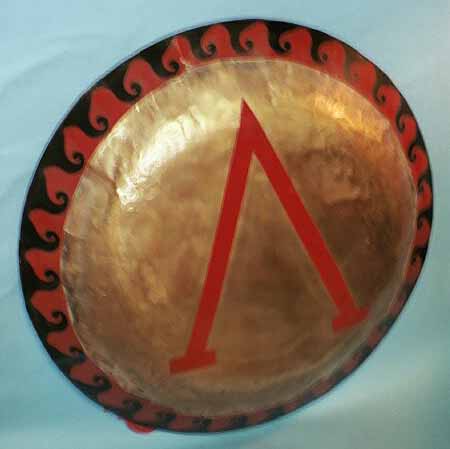
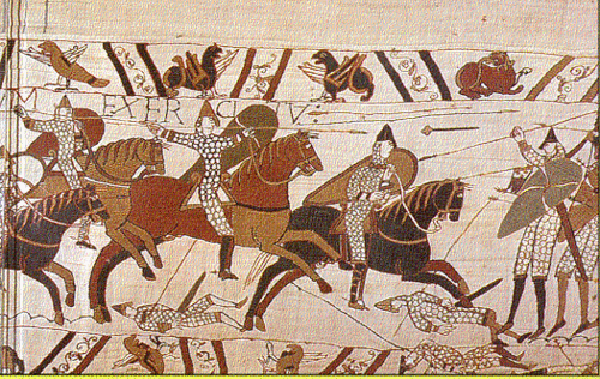
No one knows where it first originated.
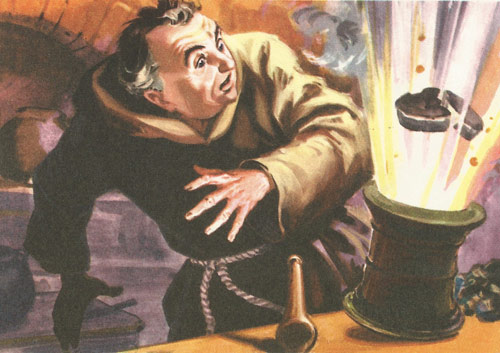
Gunpowder
Mix charcoal, saltpeter and sulfer
As the Chinese did in the ninth century
And you have the makings of gunpowder
Which can be ignited by a flame.
In the open air, it burns furiously.
If contained, it will explode.
In warfare, the explosion frightened
More than killing horses and soldiers.
Warfare for another five centuries
Still evolved swords, spears and arrows.
In the 13th century, Europeans improved gunpowder,
The new mix increased volocity ten fold.
Rather than burning without doing damage,
Gunpowder exploded with a killing blast.
This propelled a bullet or a cannonball
With significantly greater volocity
Bullets and cannonballs proved deadly
To the armored knight and fortresses.
Gunpowder changed the face of warfare,
Battles were now fought with muskets and cannon.
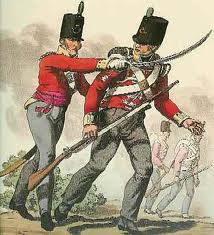
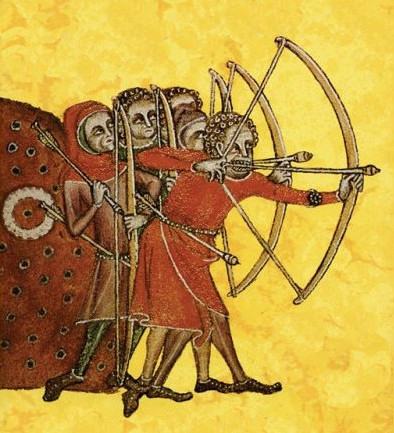
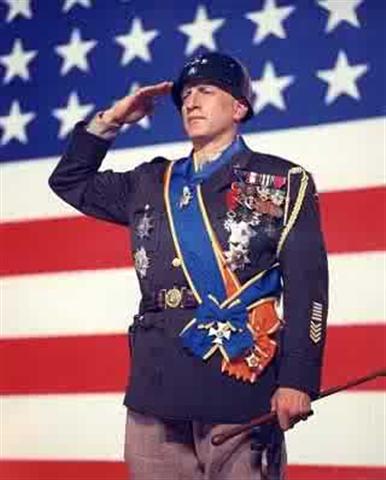
I'm a Paratrooper
At seventeen, I raised my hand
And I swore to protect country and flag.
Basic training in Missouri in the winter.
It was cold and the training was hard.
On to New Jersey to master arms and weapons.
Take them apart and put them back together.
Learn to aim and fire, and to hit the target.
Expert with pistol, rifle and machine gun.
In Kentucky, "black hats" yelling in my face.
Running, push-ups, squate jumps and running.
Jump from a tower with harness attached.
Jump from a plane, yelling "Airborne, all the way!"
Training complete: I'm a paratrooper.
No marching for me; jump into a battle;
Unhook the chute, the enemy is all around.
Make every bullet count. Kill the enemy!
A dead enemy is all the resupply that you'll need.
It is shoot and kill, go on to the next one.
Your job is done when there are no more enemy.
You've killed them all, your duty is done.